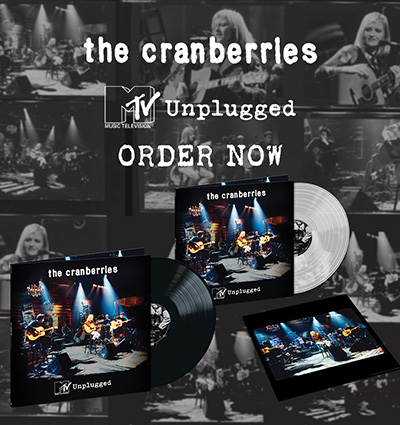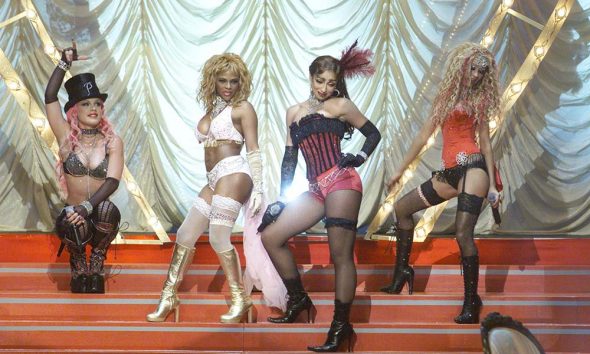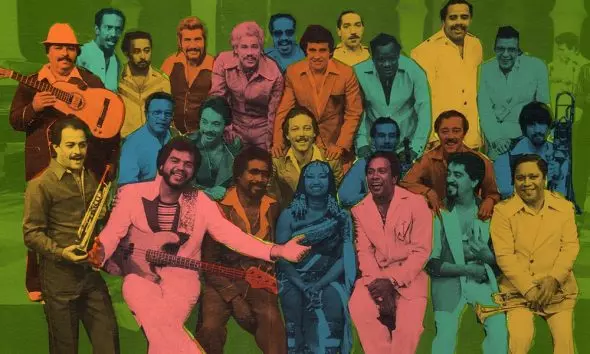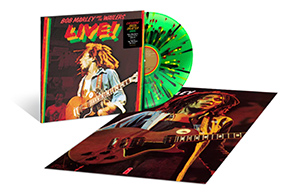The Vandals’ Joe Escalante On Conquering The O.C. Punk Scene And Their Breakout Record ‘Hitler Bad, Vandals Good’
To mark the 25th anniversary reissue of their influential album, Joe Escalante discusses his pivot from corporate America as a network TV executive to punk rock stardom.
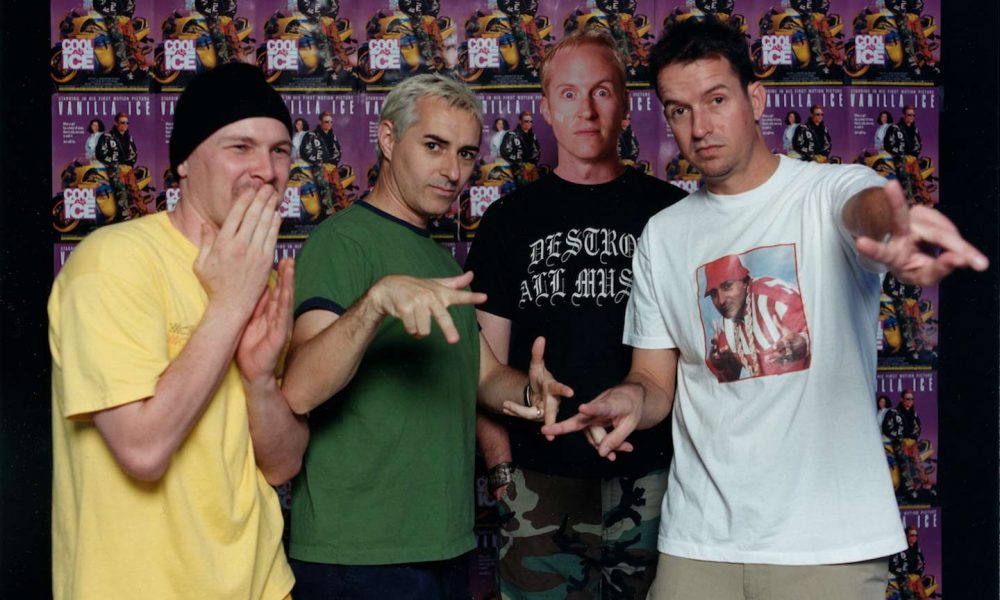
When legendary California punk band The Vandals began recording Hitler Bad, Vandals Good in 1997, the group was coming off a wildly productive and exhausting run. In 1995 and 1996, they released three albums – Live Fast, Diarrhea, The Quickening, and Oi to the World! – an impressive run by any stretch, but the band was left craving more. The band signed to Nitro Records, founded by Dexter Holland of The Offspring, and as such, were thrust into the burgeoning Orange County and Inland Empire scene as mainstay stars alongside The Offspring, No Doubt, Social Distortion, and more.
While those groups were headlining stadiums, The Vandals were still opening shows and grinding on the tour circuit. Released in 1998, Hitler Bad, Vandals Good, became an inflection point for the band and an opportunity to assert themselves as an influential act in the scene. The album became their most successful to date, which bassist Joe Escalante attributed to Vandals member Warren Fitzgerald’s increased production chops, bigger studios, a larger label budget, and an increased focus on songwriting.
To mark the 25th-anniversary reissue of their influential album, Escalante discusses his pivot from corporate America as a network TV executive to punk rock stardom, opening for Pearl Jam and Hitler Bad, Vandals Good 25 years later.
Pre-order Hitler Bad, Vandals Good.
Going into the recording process for Hitler Bad, Vandals Good, what was the band’s mindset? You were coming off three albums from 1995 and 1996.
Well, we had just released a bunch of records, like you said. I had quit my job as a network television executive to concentrate full-time on all this. Dexter Holland, from the Offspring, owned our label. He was paying us a salary in advance. We recouped all our advances, but we were getting a salary to quit our jobs and tour full-time. So I did that and then started Kung Fu records. I guess you do something; I can’t just be a bass player in an old punk band. We were pretty focused, and then Warren [Fitzgerald, guitarist] was getting better at producing. We knew we wanted to make a professional-sounding record, and I think it’s probably our best-produced record.
Do you think that reflects the popularity of it, too?
Yeah, it’s definitely the biggest-selling Vandals record there is. After that, we switched over to Kung Fu Records, and then our records didn’t sell as well, but also, the market was going down, so the records came close, but it was like, 1996 is the peak, and then, it kind of starts going down.
But if you did your work beginning in ‘94, you were grandfathered into this world, and you get to play a lot of festivals, like the Punk in Drublics, and these beer festivals, and the Flogging Molly Cruise, which we’ll do in November. We haven’t made a new record since 2003, which we’re happy with. We think we did plenty enough. If you want a punk album written by guys in their sixties, that’s on you.
Going into the studio, how much conversation was there around things you wanted to do differently than previous records? Or what were the goals, entering the studio with the record?
The goals were not to spend too much because it was high stakes at that time. Studios are wildly expensive, and the engineers are expensive, so that was hanging over our heads, spending someone else’s money. I remember Dexter got mad at us because we were spending too much money on catering.
You get that pressure, and we could see the punk market getting bigger. We could see it getting more profitable. We thought, “Wow, this could be the record that gets us to the level of where Rancid and NOFX and Bad Religion are. I think the material’s good enough.” That’s what we were thinking. “This is our best shot at getting to the next level.”
What was the punk scene in Orange County in ‘98 like?
The real energy was a little further east, in what is called the Inland Empire. We sold out shows three nights in a row at some place called the Showcase Theater in Corona. We had our resurgence at a place called Spanky’s in Riverside. During that time, Orange County bands like The Offspring, No Doubt, and Social Distortion were getting big, but they weren’t really playing a part of the Orange County scene, where there weren’t clubs to play at. In Orange County, it’s the House of Blues at Disneyland, and that’s it.
At that time, did you view yourselves on the same level as No Doubt? Or were you on a rung below, in your guys’ minds?
We were just picking up their scraps. They were taking us and NOFX to Europe. It was their first time there since we had gone in ’89. We were opening for No Doubt on an arena tour, which is something I never thought we would do.
I was an executive for CBS, and my boss let me go on tour with No Doubt. I just called on the phone to make all my deals. I negotiated with agents and had this big rig in the back of a van. That was our last van tour. Then we moved to a tour bus, and I was 33 on my first tour bus. That was a whole ’nother world.
So we’re in a tour bus, but we’re an opening band for Pearl Jam or the Offspring. We’re just an opening band on big tours, headlining clubs, and playing the main stage on the Warped Tour. That’s the scene.
How did the band’s sound translate to arena shows?
A typical scenario would be that No Doubt’s security guy would go into the audience, find the Vandals fans, and say, “While the Vandals play, you can go up to the stage.” We’d have a little pit in the front of the stage. So many people come up to me to this day and say that their first concert was a No Doubt concert. We were the first band they saw, the first band they ever saw in their life.
We had a little pit and would tailor our show to ingratiate ourselves to the arena people coming in with their nachos and looking for their seats. So that’s what we got pretty good at in terms of winning them over. It’s like, “Hey, do you like this? Or you don’t like this, or how about some of this?” By the end, they were going, “Well, I really like that band, and I’m sorry for hating on them when they started.”
Back to your work with Dexter Holland. Was it strange having a friendship with your label boss? Did that ever get strained?
A little bit, because he held all the purse strings, but we would treat him professionally. I came from a professional and corporate world, so I treated everything like that.
Reflecting on an album from 25 years ago, do you like looking back on it, or is it weird to revisit a different time in your life?
It’s a little weird because I’m always thinking, ‘Should I have quit my corporate job?’ The guy that replaced me now makes eight million a year at another place. So I’m always reading about this guy. Well, two people replaced me. One guy makes eight million a year, and the other guy, someone, told me he looks like death. So I got out; who knows what would have happened.
It’s hard to keep facing that, “Ah, did you make the right decisions?” But with revisiting this record, it’s a quality record; it’s our best record, and it’s our best-selling record. So at least we’re talking about something we can all be proud of.
The juxtaposition of being a corporate leader and then going into a punk band is…unique. What did your peers say at the time?
Oh, they still talk about it. My sister said last Saturday, “Do you ever think about what your life would be like if you didn’t quit CBS?” I’m like, “Oh, jeez,” and then I have to justify it to her. I go, “Yeah, but then, I wouldn’t have gone to Iraq and Afghanistan and toured with Pearl Jam and No Doubt and all these things; I wouldn’t have met my wife.” I’m sitting here on the beach. It’s hard to cry about it.
Kung Fu Records was successful because I ran it like a grown-up company. It was always a corporate environment, not a hippie fest. There wasn’t any anti-corporate culture. The books are solid; everyone’s paid. We have $250,000 royalty software that pays royalties twice a year, on time. So that training was beneficial. And other labels, I could name names, but some of them are just a mess. I’m proud of the way we have done things.



